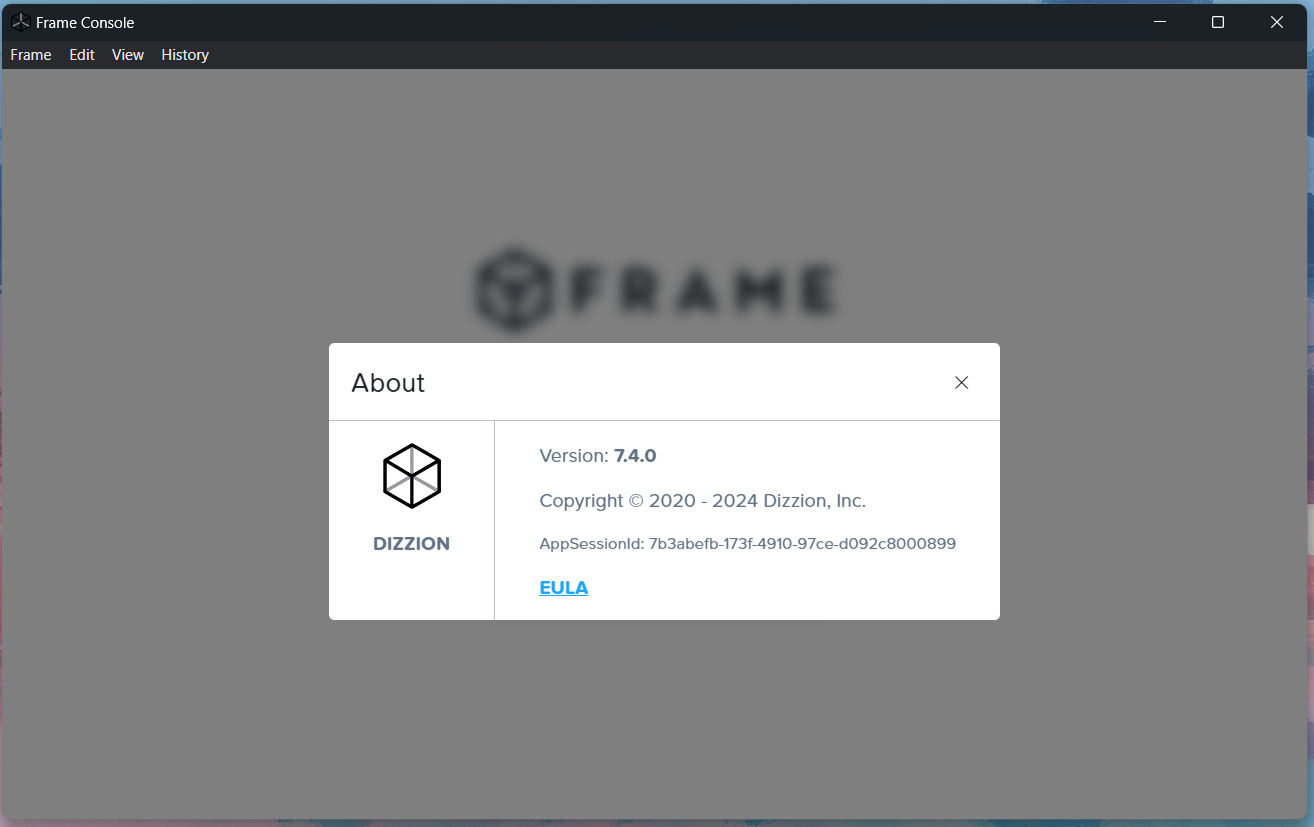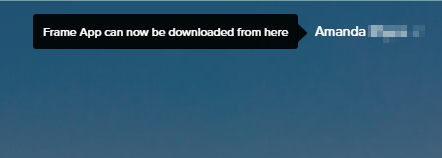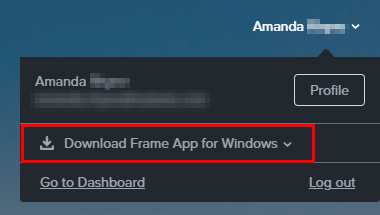Getting Started
Deploying Frame App for your end users can be done in a few steps. The following guide will outline how to download, install, update, and use Frame App.
Installer Downloads
Frame App installation and setup are uncomplicated and should only take a few minutes.
Frame App Installer Download by Administrator
Frame administrators can download the Frame App Installer for Linux, macOS, and Windows in two ways:
- They can log in to the Frame Console and go to their customer entity, click on the kebab icon, and go to Update > Settings. On the Settings page, they can download the Frame App installers for their desired operating system(s) and share the installer(s) with their end users.
- Or, they can download the Frame App installers for their desired operating system(s) from our Downloads page, and share the installer(s) with their end user

Frame App Installer Download by User

1. Once this toggle is enabled, end users can navigate to their Launchpad in a browser to their profile name.
2. The end users would click on their profile name and select “Download Frame App for ---” from the menu. The browser will automatically detect the endpoint device operating system and show the appropriate Frame App installer.
Installation
Windows Installer
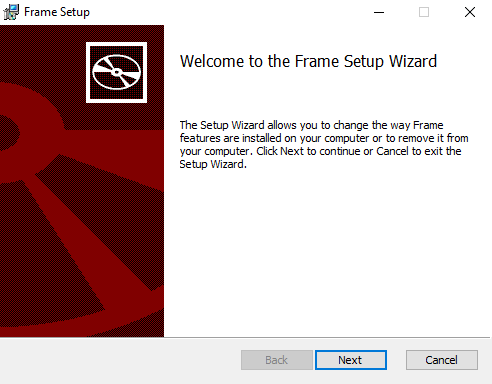
Frame App Installer for Windows - Welcome
Follow the prompts provided by the setup wizard, you will be asked to define the directory where you want the application installed.\n3. Click “Finish” after running through the installation wizard.
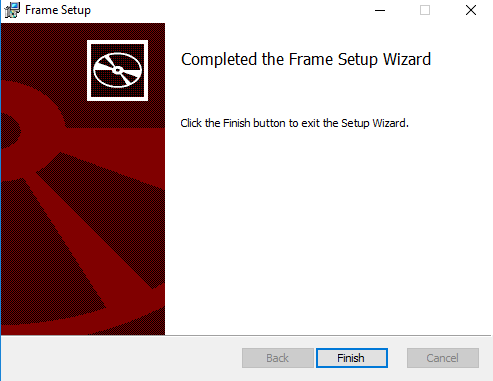
Silent Installation for Windows
Customers wishing to deploy Frame App through a silent installation process for Windows can do so by invoking msiexec as a Windows administrator with the Frame App MSI package, starting with Frame App 5.11. A basic silent install of Frame App 6.11 would have a command line: msiexec /i Frame-app.msi /qn\n
To generate an installation log during the silent install, a sample command line would be:msiexec /i Frame-app.msi /L*V "FrameApp.log" /qn\n
Note that the following msiexec.exe commands can be used:
| Argument | Details |
|---|---|
/i |
Normal install |
/norestart |
Do not restart the device after the installation completes. |
/qn |
No UI during the installation process |
/quiet |
No user interaction required |
MacOS Installer
- Once the Frame installer dmg file is downloaded, double click on the dmg file.
- Drag the file into the applications folder.
- Before starting Frame App, navigate to your System Preferences > Security & Privacy. Scroll down to Input Monitoring, unlock the dialog to make changes, and check the box next to Frame. Lock in your preferences. This is critical if USB devices are to be used in a Frame session.
- Scroll down to Input Monitoring, unlock the dialog to make changes, and check the box next to Frame. Lock in your preferences. This is critical if USB devices are to be used in a Frame session
- Launch Frame App when you're ready to begin using it.
Linux Installer
Frame App for Linux is only supported on Ubuntu and Ubuntu-based thin client OS that are Frame Ready validated (e.g. IGEL OS, Stratodesk NoTouch OS, Zeetim ZeeOS, and 10ZiG PeakOS)
- On your Linux endpoint, open a terminal window and navigate to the location where you have downloaded Frame App. Take note of the version number of Frame App.
- Run sudo apt install plus the file name/location, as shown below.
- Once installed, you should be able to access Frame App from your App Launcher.
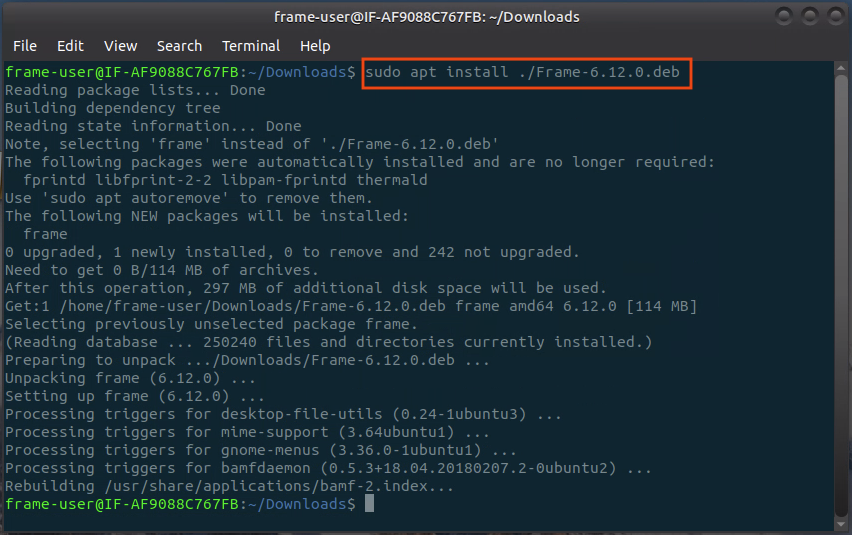
Updates
Once installed, Frame App will automatically check for updates every time you launch it. You will be prompted to update your version of Frame App if any newer versions are available. To check your version of Frame App, simply click on the Frame menu and select About.
